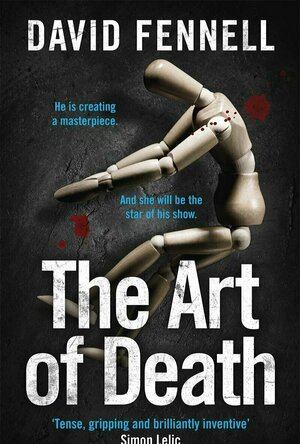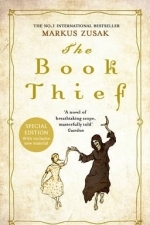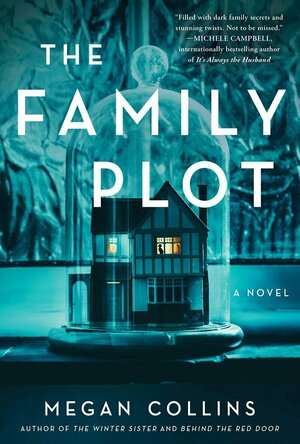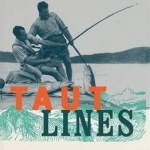
Taut Lines: Extraordinary True Fishing Stories
Book
Since the earliest writings of civilization, people have been writing about fish and the pursuit of...
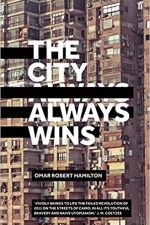
The City Always Wins
Book
'Omar Robert Hamilton brings vividly to life the failed revolution of 2011 on the streets of Cairo,...

Crazy Like Us: The Globalization of the Western Mind
Book
It is well known that US culture is a dominant force and its exportation of everything from movies...
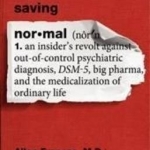
Saving Normal: An Insider's Revolt Against Out-of-Control Psychiatric Diagnosis, DSM-5, Big Pharma, and the Medicalization of Ordinary Life
Book
From "the most powerful psychiatrist in America" (New York Times) and "the man who wrote the book on...
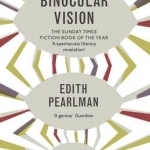
Binocular Vision
Clare Skeats and Edith Pearlman
Book
Edith Pearlman's Binocular Vision are the collected stories of an award-winning author who has been...
BookInspector (124 KP) rated The Art of Death in Books
Jul 1, 2021
The narrative of this book always changes, from the investigation it jumps to new abductions, to personal character’s lives. All these things made the book very fast-paced and enjoyable for me. Even though it is a debut novel, I felt like this book is a part of a series because of the way the author incorporated the details from DI Archer’s past. I felt like I missed the investigations that happened in the past. 😀 I found the plot very multi-dimensional, absorbing and creepy. The topics discussed in this book were grief and loss, traumatic experiences, workplace discrimination, many mental health issues, drug use, domestic and other violence and many many more.
The writing style is very easy to read and enjoyable, but at the same time, it felt unusual, different. (I can’t describe how though 😀 ) The author has experience in cybersecurity, and it was interesting to see, how he highlights the mistakes people do in their daily lives when it comes to our social media and online presence. There are a lot of gory murder scenes in this book, so it might not be suitable for sensitive readers. The atmosphere and the setting of the novel constantly change, depending on the perspective, and I really enjoyed it. The chapters are pretty short, and the whole novel was a page-turner for me. I really loved the ending, it left me very intrigued, and I can’t wait for another book. 🙂
So, to conclude, it is a very rich novel, full of layered and diverse characters as well as a plot that is fast-paced and always changing. I really enjoyed this book, it highlights so many various topics and social issues, you just need to find it.
Becs (244 KP) rated The Book Thief in Books
Oct 2, 2019
One thing that I enjoyed while reading was the narrator of the story (death himself) and all the little bits that are thrown throughout the text like this:
***THE ONLY THING WORSE THAN A BOY WHO HATES YOU***
A boy who loves you.
The author takes such a serious and sad topic and throws in love, sarcasm, and happiness. This was such a well rounded, beautiful and classic novel that I just couldn’t put it down. I loved every second of it, even though at first I was a little skeptical. But that’s only because I was in such a sour mood and reading slump when I started The Book Thief.
If you’re looking for a fast read, don’t read this. This took time to read and to understand. To process all that was going on. Markus Zusak doesn’t write The Book Thief in a morbid way that most books about the Holocaust are written, but instead with humor and love and happiness. The good and the bad all intermingled together to create an amazing book that I will be recommending to everybody from now on.
I cried. I laughed. I got pissed. I was stricken with grief, with pain, and with love. I felt that I went through almost every emotion that my body has while reading The Book Thief. And I honestly wanted more.
I wanted more of Liesel’s story after being the only one to survive on Himmel Street. I wanted spin-offs of Rudy and Liesel developing a relationship as they became teenagers and giving me that love story with a tragic back story. I wanted so much more but at the same time, I was content and happy with how the novel ended. I wouldn’t have changed anything about The Book Thief and I will most definitely be rereading it very soon. This is a book that will be cherished for an eternity.
If you haven’t picked up The Book Thief yet, please drop what you’re doing and read it. It will most defiantly change your life.
“And it would show me, once again, that one opportunity leads directly to another, just as risk leads to more risk, life to more life, and death to more death.”

Bible Quotes: My Lord - Inspirational Verses from the Bible for Everyday Life
Lifestyle and Education
App
Bible Quotes: My Lord - Inspirational Verses from the Bible for Everyday Life ★★★ A selection...

Buzz Books 2018: Young Adult Fall/Winter: Exclusive Excerpts from Forthcoming Titles by Rebecca Hanover, Julie Kagawa, Kody Keplinger, Natasha Ngan, Courtney Summers and More
Book
Our ninth Buzz Books: Young Adult gives readers the special excitement of being among the first to...
Kristy H (1252 KP) rated The Family Plot in Books
Sep 16, 2021
"I have to find out what happened to Andy. Then I have to leave this place for good."
This is a dark thriller that will appeal to true crime fans. The Lighthouse family embodies true crime--home schooled, the kids write reports on various serial killer victims and they perform rituals related to their deaths. The obsession with death and murder runs deep, and it's certainly unsettling at first. Dahlia's mother lost her own parents in a gruesome way, and it's definitely apparent that this family isn't quite right.
The first half of this book was really fascinating for me. Weird yes, but oddly interesting as you get to know this messed up family and all their dark secrets. Dahlia seems like a sister grieving the loss of her twin brother, and you find yourself wanting to know what happened to him. There's certainly a limited pool of suspects (small island) but the book keeps you guessing.
The second half did not seem as strong as the first. The weirdness factor ratchets up to almost unbelievable. Dahlia's older siblings are annoying and too much. The limited pool of subjects becomes almost cloying, suddenly making things seem too obvious as the plot thickens and become a bit too bizarre. Things get incredibly grim at times.
Still, while this is a strange read, overall it's a page-turner and something kept me reading. It's like a trainwreck from which you cannot look away. Collins definitely includes some good points about the bonds of family and people's obsession with crime and murder. 3.5 stars.
I received a copy of this book from Atria Books and Netgalley in return for an unbiased review.
